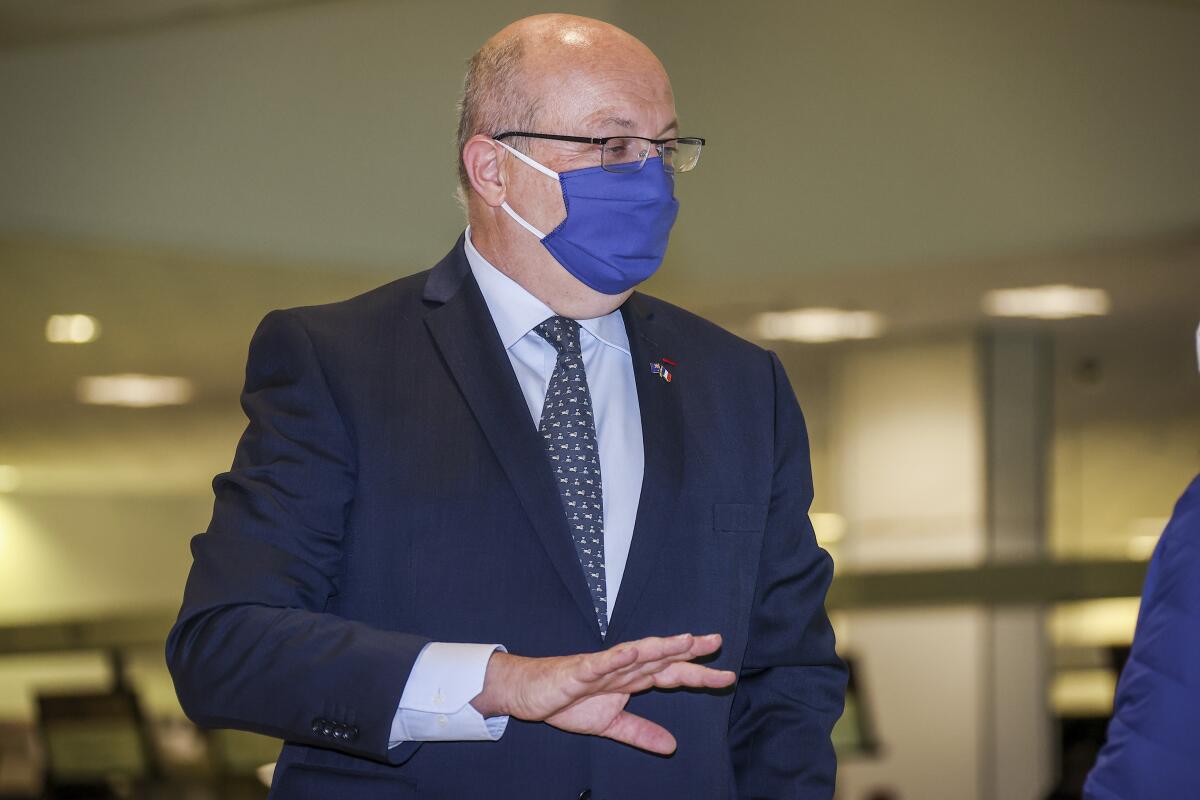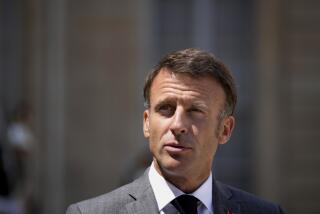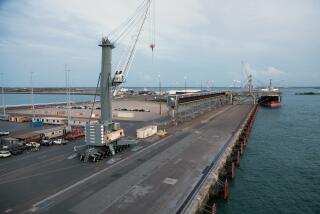France casts aside diplomatic niceties as submarine deal ends

- Share via
PARIS — Tossing diplomatic niceties out the window, France’s ambassador to Australia on Saturday described as a “huge mistake” the surprise cancellation of a multi-billion dollar submarine contract in favor of a U.S. deal.
Australia’s sudden breaking of what was widely billed in France as the “contract of the century” has triggered the unprecedented show of anger among allies.
“This has been a huge mistake, a very, very bad handling of the partnership,” French ambassador Jean-Pierre Thebault said before flying home to France.
Paris recalled its ambassadors to Australia and the United States on Friday to protest an abruptly announced deal between the United States, Australia and Britain to supply the Australians with a fleet of at least eight nuclear-power submarines.
China Evergrande is struggling with more than $300 billion in debt. At its Shenzhen headquarters, angry suppliers and investors demand overdue pay.
The arms agreement between France and Australia, signed in 2016, was supposed to be based “on trust, mutual understanding and sincerity,” a fuming Thebault said. “I would like to be able to run into a time machine and be in a situation where we don’t end up in such an incredible, clumsy, inadequate, un-Australian situation.”
Thebault flew out of Australia about 17 hours after the announcement from Paris.
After an initial burst of anger from French Foreign Minister Jean-Yves Le Drian, Paris has been silent.
Le Drian said in a written statement Friday that the French decision — at the request from President Emmanuel Macron — “is justified by the exceptional seriousness of the announcements” made by Australia and the United States.
He said Australia’s decision to scrap a big French conventional submarine purchase in favor of nuclear subs built with U.S. technology is “unacceptable behavior between allies and partners.”
What French officials have called a complex, multi-layered contract was about more than submarines. It was the underpinning for France’s vision of the critical Indo-Pacific region, where France has a presence and China is looking to bolster its influence.
The U.S. deal scraps a $66-billion contract with French majority state-owned Naval Group to build 12 conventional diesel-electric submarines.
The Naval Group said in a statement that consequences of the contract cancelation would be analyzed with Australia “in the coming days.” It noted that teams in France and Australia have been at work on the project for the past five years.
Australian employees working with Naval Group and their families have set up home in the Normandy port of Cherbourg. A union official, David Robin, told BFMTV that employees were informed there may be an option to keep them on.
Australian Foreign Minister Marise Payne’s office earlier had issued a statement responding to the diplomat’s recall and noting Canberra’s “regret” over its ally’s withdrawal of its representative.
“Australia understands France’s deep disappointment with our decision, which was taken in accordance with our clear and communicated national security interests,” the statement said. It added that Australia values its relationship with France and looked forward to future engagements together.
Payne and Defense Minister Peter Dutton are currently in the United States for annual talks with their U.S. counterparts and their first with President Biden’s administration.
Before he was recalled, French envoy Thebault said on Friday he found out about the U.S. submarine deal: “Like everybody, thanks to the Australian press.”
“We never were informed about any substantial changes,” Thebault said. “There were many opportunities and many channels. Never was such a change mentioned.”
After the U.S. deal was made public this week, Prime Minister Scott Morrison said he told President Macron in June that there were “very real issues about whether a conventional submarine capability” would address Australia’s strategic security needs in the Indo-Pacific.
Morrison has not specifically referred to China’s massive military buildup which had gained pace in recent years.
Morrison was in Paris on his way home from a Group of Seven nations summit in Britain where he had talks with soon-to-be-alliance partners Biden and British Prime Minister Boris Johnson. Thebault said he had also been at the meeting with Macron and Morrison.
Morrison mentioned “there were changes in the regional situation,” but gave no indication that Australia was considering changing to nuclear propulsion, Thebault said.
“Everything was supposed to be done in full transparency between the two partners,” he added.
Thebault said difficulties the project had encountered were normal for its scale and large transfers of technologies.
Senior opposition lawmaker Mark Dreyfus called on the Australian government to fix its relationship with France.
“The impact on our relationship with France is a concern, particularly as a country with important interests in our region,” Dreyfus said. “The French were blindsided by this decision and Mr. Morrison should have done much more to protect the relationship.”
More to Read
Sign up for Essential California
The most important California stories and recommendations in your inbox every morning.
You may occasionally receive promotional content from the Los Angeles Times.











